Chinese entrants in intelligent driving domain

Shanghai (ZXZC)- In the past 2017, the fervor towards intelligent vehicle area seemed to be cooled to some degree. However, there were still several intelligent vehicle-related startups being built last year. Besides, some e-commerce or smart phone giants in China, such as Jingdong, Xiaomi and Suning, etc, still had movements in this field. Let's count those entrants in intelligent-connected vehicle area and see what actions they did in 2017.
JD. com
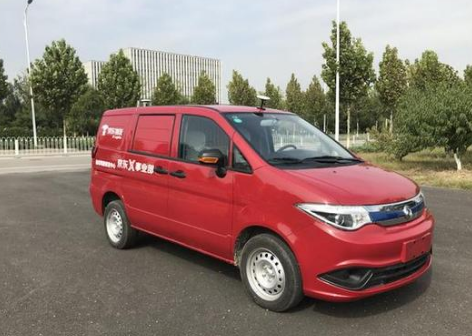
In fact, as early as 2016, Chinese online retailer JD.com had established a division focusing on R&D in logistics field. One of the future trends for the division is to develop autonomous vehicles. Specifically, it is committed to exploring solutions for delivering goods using autonomous vehicles in urban areas. Until August, 2017, JD.com's first autonomous van came to earth.
In September last year, it was reported that JD.com launched an autonomous light van EV80 under the cooperation with SAIC-Maxus. This was the first autonomous van products in China's e-commerce and logistics field. Also, the van had been tested on certain roads approved by relevant governmental departments. EV80 autonomous light van is equipped with radar, sensors, high precision map and positioning system. It can recognize obstacles from 150 meters away, and then replan its route. Meanwhile, the front camera can perceive signal lights.
In addition, JD.com also teamed up with Dongfeng Motor technical center and corporately launched Dongfeng electric autonomous light van.
On December 6 last year, JD.com's autonomous vehicle industrial base, with a planned investment of over RMB 10 billion, was officially located in Changsha, Hunan Province. This project would be devoted to plentiful businesses relevant to autonomous vehicles, such as R&D, testing and staff training, etc, and development of other AI products. At present, JD.com's autonomous vehicles have evolved to the third-generation and will be launched the fourth generation in 2018.
Xiaomi
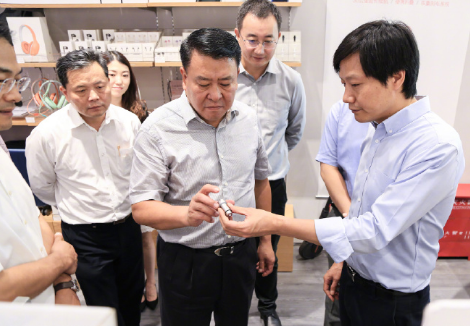
Just like Huawei, there are also many rumors saying that Xiaomi will march into auto area. In July, 2015, some news revealed that Xiaomi had applied for the registration of some vehicle-related technologies which deepened the speculation about Xiaomi's vehicle-making plan.
In July last year, a source said Xiaomi had entered a strategic partnership with Beijing Automotive Industry Corp (BAIC) and their cooperation was about the intelligent driving. According to some people close to this matter, on that day, BAIC's president Xu Heyi and other senior executives, accompanied by Xiaomi's CEO Lei Jun, visited one of Xiaomi's customer service center in Beijing. During this visit, Lei Jun had introduced and showed Xiaomi's whole series of products, especially some vehicle-related products. All of these moves may hint Xiaomi's ambition in auto field.
In addition, the China's electric startup Xpeng Motors announced that Xiaomi is one of Xpeng Motors' investors in its latest round of financing.
Meanwhile, Xiaomi is also a model that many vehicle startups learn from. For example, Singulato Motors had expressed several times that it intends to learn Xiaomi's operation mode in smart phone field and applies it to vehicle-making area. If Singulato Motors' idea could be realized, therefore, it is possible for Xiaomi to get success in auto industry as it succeeds in mobile phone area.
Huawei
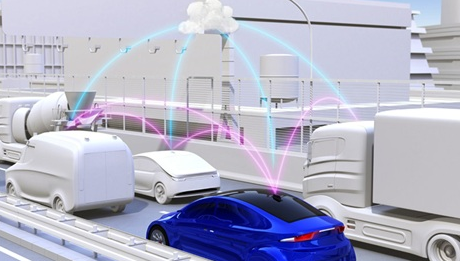
Strictly speaking, Huawei is not an entrant in auto area. As early as 2013, Huawei had showcased several solutions and products of Internet of Vehicle (IoV) at Mobile World Congress in Barcelona of Spain, including the factory-installed vehicle-borne hotspot DA6810, automotive online diagnostic system DA3100 and 3G/4G communication modules conforming to vehicle standards, etc.
After that, Huawei formed partnerships with Dongfeng Motor and Changan Automobile in areas of IoV and intelligent vehicles. In the meantime, Huawei is devoted to promoting 5G technology and LTE-V2X's commercial use. For instance, it cooperated with Vodafone Group to test 5G technologies. Besides, it joined a 5G auto alliance with many other enterprises, such as Audi, BMW, Nokia, etc.
The rumor about Huawei making vehicles was once fueled and it was even exposed that "Huawei has tested its driverless vehicles in UK". Besides, it built cooperative relationships with some automakers like GAC Group, BAIC Group and Groupe PSA, etc, which futhur intimated Huawei's vehicle-making plan.
However, Huawei has told the public many times that it concentrates on IoV other than making vehicles. In the future, it will continue to promote the development of IoV technologies on basis of cloud-network synergy and device-cloud synergy.
Suning
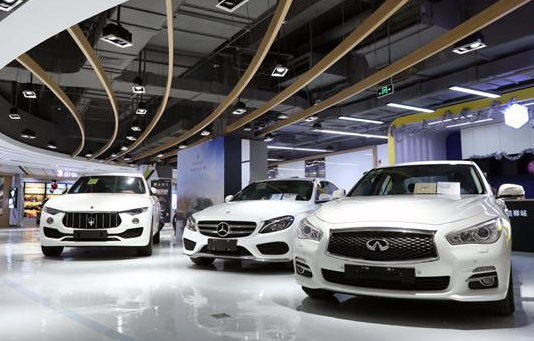
As a China's leading on-line retailer, Suning's connection with intelligent vehicle can be traced back to its cooperation with Byton, a brand of Chinese vehicle startup FMC.
On October 24 last year, some BYTON's senior executives visited Suning. The two sides reached a consensus on further cooperation in the future. They had a vision to integrate Suning's channel advantages in Internet business with the design and promotion of Byton's intelligent vehicles. For instance, they planned to implant Suning's apps to BYTON Life, an in-vehicle operating system of BYTON's intelligent vehicles. For Suning, the cooperation with BYTON means that Suning officially entered the field of Internet smart vehicle.
In July last year, Suning opened its first auto supermarket in Xinjiekou, Nanjing. Then, in December, 2017, Suning announced that Suning.com Auto Company was established. Besides, Suning plans to open 20 automobile supermarkets in 2018, 40 stores in 2019 and 2020 respectively. By the end of 2020, the cumulative number of auto supermarkets will exceed 100 around China.
JingChi
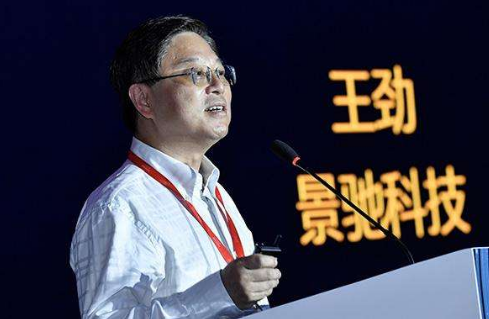
JingChi is a China's mobility company powered by artificial intelligence which is true of an entrant in intelligent driving area. Established in April, 2017, Jingchi was found by Baidu's former vice president Wang Jin. After less than 5 weeks, the startup announced that it had completed its first autonomous vehicle test in closed field. In June last year, Jingchi obtained the license of autonomous vehicle test in California. Just a few days after, Jingchi finished its first autonomous vehicle test on public roads in California. According to Wang Jin, the company plans to start trial operation of small-batch autonomous vehicles in several cities around China this year.
On September 26, Jingchi announced the completion of a combined $52 million Pre-A investment round from lead investor Qiming Venture ("Qiming"), strategic investor NVIDIA GPU Ventures, and a consortium of other investors.
Although Jingchi developed much more smoothly than other startups, it came across a big trouble last month. On December 22, 2017, Baidu appealed to Beijing Intellectual Property Court to prosecute Wang Jin and his company Jingchi for the infringement of commercial secrets. Wang Jin responded that Baidu's prosecution was totally untenable.
On December 28, 2017, Jingchi signed a contract with the local government of Huangpu District Development Zone in Guangzhou City to launch an autonomous driving project. In the meantime, the company announced that its global headquarter would be settled in Guangzhou Huangpu Development District and the core team, including R & D, operations and sales headquarters, would move from Silicon Valley in the United States to Guangzhou city, aiming to be the first company to achieve large-scale, commercial deployment of fully Level 4 autonomous vehicles in China.
HoloMatic

HoloMatic is a China's autonomous driving technology startup founded in August 2017 by Dr. Ni Kai, former senior scientist at Baidu and vice president at LeEco's autonomous driving unit.
HoloMatic thrives to deliver Level 3.5 production-ready autonomous driving functions. To be specific, The company is positioned to develop Level 4 automatic driving solutions, and then apply the technology as Level 3 system, which is under a higher security standard and is suitable for mass production at the same time.
Just one month after its foundation, HoloMatic revealed that it had already completed a $ 10 million level of angel financing which was invested by IDG Capital and Navinfo. Then, HoloMatic officially announced its strategic cooperation with Navinfo to jointly explore innovative autonomous driving services worldwide and develop high-precision map products.
In November last year, the startup unveiled “Xuanyuan” autonomous driving platform. According to the company, “Xuanyuan” is China's first autonomous driving platform spanning from hardware area to software area which supports the R&D of L2 to L5 autonomous driving systems. Besides, this platform is able to provide some basic autonomous driving abilities for production vehicles, such as a reliable vehicle manipulation of running, braking and changing gears.
Ni Kai also revealed that “Xuanyuan” platform was just a phased achievement. In the future, Holomatic will still be devoted to developing L3.5 autonomous driving technology and promote the mass production of this tech.
DeepMotion AI.

DeepMotion AI. is a China's autonomous driving startup co-founded by AI experts from Microsoft Research. Three of its four founders, Cai Rui (the CEO), Li Zhiwei (the CTO) and Yang Kuiyuan (the chief scientist) all had worked at Microsoft Research Asia (MSRA) for nearly 10 years.
According to relevant reports, the startup had raised a funding before its foundation. DeepMotion AI., focusing on the area of perceptual and positioning maps, designed a series of low cost solutions based on the integration of cameras with other sensors like GPS and IMU which endow autonomous vehicles with refined abilities of environment perception, high-precision mapping and localization.
The company also stated that it would like to provide its existing technical achievements for the companies who need them. Currently, DeepMotion AI. has contacted with some mapping companies and is expected to achieve the commercialization of these technologies in 2018.
DominantTech
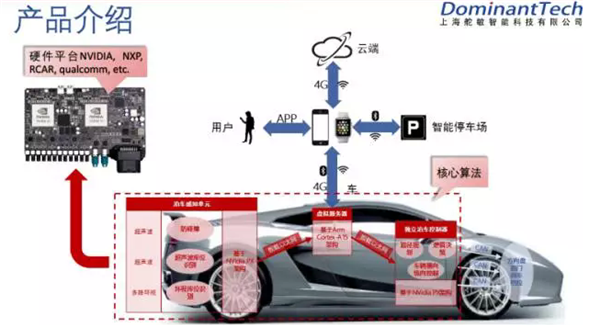
Founded in 2016, DominantTech, a China's autonomous driving company, chose to start with developing short-range automatic parking technologies. The company considered that mature automatic parking technologies can help drivers be released from the tortures of parking. For parking lot operators, the application of automatic parking tech can save space and time for them. Besides, automatic parking technology has been evolved to a quite mature level and can be used in closed scenarios. Thus, it is relatively easy for the company to make profits from it.
Currently, DominantTech has already made a planning for short-range automatic parking development. It plans to achieve the mass production of the advanced parking assistance system 1.0 version in 2018. The fully automatic parking system 1.0 version is expected to be mass-produced in 2019 which will be applied in ground- and underground- scenarios. 2.0 version and 3.0 version of fully automatic parking system are forecasted to be mass-produced in 2020 and 2022 respectively. Especially, the 3.0 version will be applied in vehicles with L4 driverless functions.

